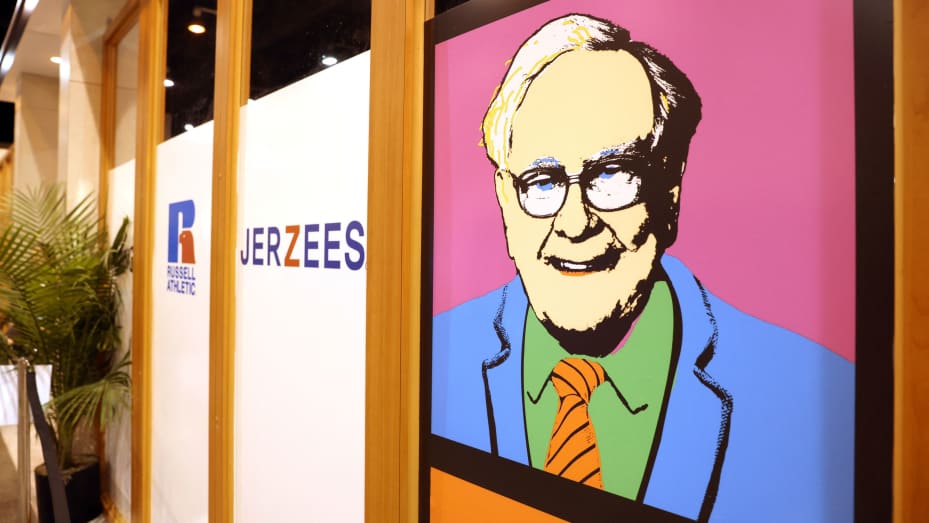Share Buybacks – A Source Of Conflict For Many Wall Street Critics And Government Leaders.
Buffett has emphasized a contrast between how corporations execute share buybacks.

Billionaire Warren Buffett dismissed critics of share buybacks for being the “economic illiterates” or “silver-tongued demagogues,” claiming that buybacks benefit the shareholders of the firm that conducts them. The arithmetic is simple: when the share count falls, interest in several businesses rises, Buffett stated in his annual letter to Berkshire Hathaway shareholders. Share buybacks have been a source of conflict for many Wall Street critics and government leaders. In addition, the US government has levied a 1% excise tax on all buybacks by publicly traded corporations.
How share buybacks helped Buffet?
Share buybacks by American corporations have typically added value to investors. Berkshire has benefited from Buffett’s participation in Coca-Cola and American Express share buybacks. Repurchases at Apple and American Express raised Berkshire’s shareholding a little without cost to them, Buffett stated. Berkshire has also conducted multiple repurchase operations in recent years, spending $7.9 billion on buybacks in 2022. This is due to the company’s inability to locate profitable investment options to deploy capital.

Last year, Coke paid Berkshire $704 million in dividends, while American Express paid $302 million, helping to increase the value of their interests to $25 billion for Coke and $22 billion for Amex. In the 1990s, Berkshire paid $1.3 billion for each of these investments. According to Buffett, the main lesson for investors is that it only takes a few winners to work miracles. Indeed, starting early and living into your 90s helps.
As a result, the value of Berkshire‘s sizable stock holdings skewed those bottom-line figures once more. Since operational earnings exclude derivatives and investments, Buffett believes they are a better gauge of Berkshire’s performance. Nonetheless, Berkshire’s operating earnings fell to $6.7 billion, or $4,584.46 per Class A share, from $7.3 billion, or $4,904.23 per Class A share, the prior year.
Berkshire keeps investing in whole companies and stocks whenever Buffett perceives an opportunity. According to Edward Jones analyst Jim Shanahan, he was extremely active last year, making a net investment of almost $53 billion. Most of that was invested in Occidental Petroleum and Chevron shares, as well as Alleghany Corp. insurance, which was purchased for $11.6 billion last October. Despite all of that expenditure, Berkshire Hathaway’s cash reserves increased to $128.6 billion at the close of the year, up from $109 billion at the conclusion of the third quarter. Berkshire Hathaway’s companies create so much cash that it accumulates faster than Buffett can invest it.
Berkshire increased its interest in the Pilot Flying J network of 750 truck stops to 80% at the start of this year, up from 38.6% in 2017, which will enhance this year’s profitability. Berkshire’s profitability tends to track the success of the US economy since so many of its dozens of industrial, utilities, and retail businesses do. The conglomerate is a gauge of the economy in many ways.
The concept of share buybacks in Indian equities-An example of Paytm.
In India, investors have clashed over share buybacks by new-age businesses like Paytm (One97 Communications). Instead of sharing the idle wealth with investors, Paytm’s repurchase was viewed as a panicky attempt to halt a sinking stock. This was due to the company’s buyback following a subsequent public offering of shares despite a persistent decline in its market capitalization.

Moreover, investors have highlighted that share buybacks through the open market are discriminatory among a company’s stockholders. Furthermore, they represent a source of tax arbitrage. The capital markets regulator has revised regulations that limit the use of the open market for share buybacks.
Share buybacks in India might take one of two forms: open market or tender. The firm seeks offers for its share buyback through a tender open for a certain period, in which all shareholders are entitled to take part and offer shares to the company directly. Investors that choose the open market approach can sell their shares on the open market. The tender mechanism guarantees a set price exit for all investors, but the free market does not.
Paytm’s buyback offer was made on the open market. Depending on the company’s financial success, buybacks are seen as advantageous or destructive. For example, share buybacks by cash-rich prosperous companies like Infosys and TCS have been highly appreciated. Nevertheless, Paytm’s attempts garnered criticism mostly because of the company’s poor financials and quarterly losses.
The letter by Buffett.
Buffett used his characteristic self-deprecating tone to claim that Berkshire’s incredible record of doubling the returns of the S&P 500 over the previous 58 years with him at the helm is the consequence of only a dozen genuinely brilliant judgments – around one every five years. He mentioned a handful of them in his letter, but he kept his message — which has long been one of the most widely read business documents — relatively brief this year, at little over eight pages. He also dedicated a whole page to an homage to his 99-year-old business buddy Charlie Munger.

The last line.
Buffett, too, has emphasized a contrast between how corporations execute buybacks. Just as, when a business overpays for repurchases, the remaining shareholders suffer. In such situations, profits go exclusively to the selling shareholders and the friendly, but pricey, investment banker who advised the rash acquisitions, he said. He has argued that buybacks are beneficial in the case of corporations that provide value to shareholders over time. Buffett’s view is that all buybacks are terrible, which many investors have recently said.
Edited by Prakriti Arora




